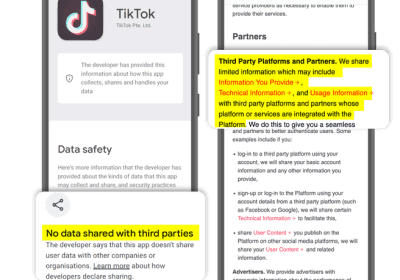How many times have you left the table after a meal with the feeling that you were still hungry? This can be quite common, but the ideal is to feel satiated for a while after eating. However, many nutritional, psychological and other clinical conditions influence satiety.

It is worth mentioning that hunger is a physiological need for the body to obtain energy and nutrients. Already feeling full means being satisfied after eating. And that fullness is regulated by various mechanisms such as hormones and the nervous system.
It is important to pay attention to this constant hunger, especially if the meal is balanced, the person has eaten fully and in ideal quantities. In this process, the choice of food is fundamental, as some are more satisfied than others.
Here are some reasons that cause this hunger out of time and what to do to alleviate it.
1. Nutritional composition of meals
The first step is to assess the nutrients that make up the main meals. If you have only foods rich in simple carbohydrates, for example, the person feels hungry more quickly. This is because these carbohydrates turn into sugar in the body.
When there is a sugar spike, that is, a high rise in blood glucose, the body releases a lot of insulin, as it needs to take that sugar into the cells. But, just as they have risen rapidly, these levels also fall rapidly, which causes hunger.
For this reason, it is important whenever possible to include foods that have good quality fiber, protein and also fats in meals. These nutrients increase the feeling of satiety by taking longer to digest. In addition, they prevent the sudden increase in blood glucose when they are associated with the carbohydrates of meals.
2. Drink little water
It is common for confusion to occur between feeling thirst and hunger. This is because the body emits signals similar to the brain when it is without food or is dehydrated. Drinking water often reduces the feeling of hunger. However, it is worth mentioning that it is not recommended to drink a lot of liquid before or during meals. This habit masks the feeling of satiety at the time of the meal, causing the hunger to come soon after.
3. Not paying attention while eating
Do you usually watch TV or keep an eye on your cell phone while having lunch? The satiety process is complex and also involves attention and the pleasure of eating. Not paying attention at mealtimes takes the focus off the food and inhibits the feeling of satiety. And it is also common that this habit contributes to the person eating quickly, without noticing the smell and taste of the food that will be eaten.
Eating carefully and slowly allows the body to feel full more quickly. Eating meals calmly helps the body to produce leptin, the satiety hormone, in the right dose and inhibits the action of ghrelin (hunger hormone). The experts’ recommendation is to chew your food well, sit at the table without distractions and enjoy each mouthful to have more satiety.
4. Live stressed and sleep little
The stress and the accumulated sleep also contribute to a person feel hungry after meals. These habits alter the functioning of the organism and cause changes in the hormones responsible for satiety and hunger. When sleeping little, the body needs greater effort to maintain its functions, especially attention. With this, the metabolism is altered, which favors an increase in appetite.
Stress works in the same way as a lack of good sleep. To maintain the level of serotonin, a hormone that causes tranquility and well-being, it is common to feel like eating as a form of compensation. In addition, living under stress increases the hormone cortisol. Although the effects may vary between individuals, the high level of cortisol possibly increases the desire for food. Stress also decreases the levels of hormones related to the feeling of fullness. Thus, it is essential to find ways to control stress and sleep properly.
5. Restrictive diets
Those on low-calorie diets and inadequate foods tend to feel hungry more quickly. This restriction causes hunger hormones to increase and satiety hormones to decrease. Therefore, it is important to carry out a nutritious and balanced diet to ensure satiety when there is a desire to lose weight.
Restrictive diets, especially in carbohydrates, reduce the amount of the neurotransmitter serotonin, which regulates appetite, since they favor the entry of tryptophan into the brain. By restricting too much food, food becomes monotonous and the person may give up in a short time or end up overcompensating at the first opportunity.
6. Hormonal problems
Some hormonal changes interfere with the regulation of hunger and satiety. Among these hormones, those produced by the thyroid stand out: its improper functioning causes hypothyroidism, which increases hunger.
In addition, cortisol and growth hormones, when deregulated, affect appetite. In such cases, it is important to have a check-up and check if everything is fine with the body or if there is a need for treatment. The menopause can also affect the feeling of satiety, as changes occur in hormone production, particularly estrogen.
7. Having diabetes
One of the symptoms of decompensated diabetes is an increase in hunger and thirst. And this situation happens when the body is struggling to eliminate excess glucose. Since there is no insulin to carry sugar into the cell, the body continues to need energy, causing hunger to increase to meet its needs. So having high blood sugar and insulin resistance significantly increases hunger levels.
8. Use of medicines
Some drugs alter the perception of hunger and affect metabolism. This tends to happen more with those taking antidepressants and corticosteroids. But in any case, whoever starts with a medication and feels that he has more appetite, should communicate this change to the doctor. The specialist needs to check the dosage or if there is a need to replace the medication, if possible.
How to distinguish hunger from binge eating?
Anyone who feels like eating all the time, even after main meals, may have a condition known as Eating Compulsion Disorder. In such cases, the person consumes food in large quantities and in a short time. They also have a lack of control during the episode, that is, they eat compulsively.
It is then worth differentiating the signs of hunger and a binge eating. In the first case, weakness, headache, feeling of empty stomach (snoring) may occur, that is, there are physiological signs. But when eating these signs disappear.
Binge eating generates a lack of control and the desire for specific foods rich in fats and sugar is common. In addition, people who give in to compulsion feel ashamed of this behavior, guilt or regret after an episode.
If you think you are excessively hungry and eating without control it is important to seek professional help to find out if it is not a disorder that needs treatment. Generally, the person suffering from binge eating is accompanied by psychiatrists, nutritionists, general practitioners and other specialists to reduce symptoms and have a healthier relationship with food.











